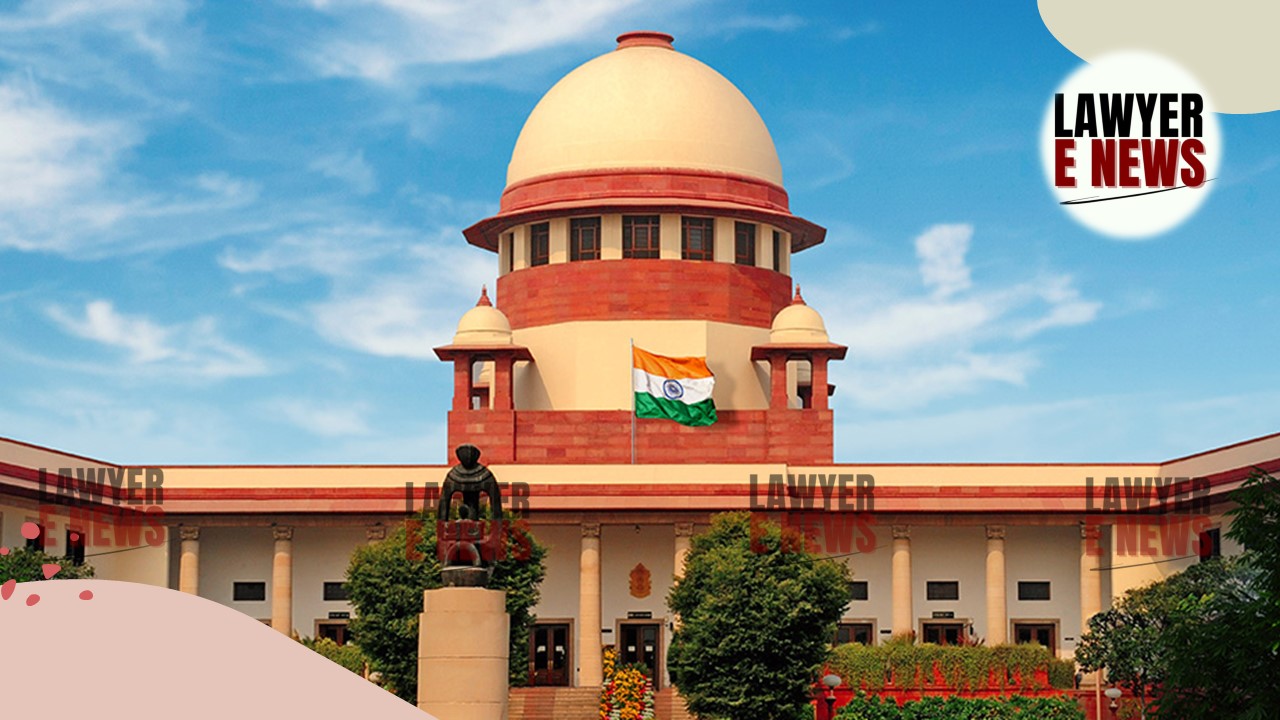-
by Admin
15 February 2026 5:35 AM



The Supreme Court dismissed the appeal by Noida Toll Bridge Company Ltd. (NTBCL), upholding the Allahabad High Court's 2016 ruling prohibiting the collection of toll fees on the Delhi-Noida-Direct (DND) Flyway. The Court declared key provisions of the Concession Agreement, which allowed NTBCL to levy tolls indefinitely, as invalid for excessive delegation and violation of public policy.
The judgment brings relief to thousands of commuters who were paying tolls for years despite NTBCL having already recovered the project's costs and profits. The Court held that such indefinite toll collection placed an undue burden on the public and violated principles of fairness under Article 14 of the Constitution.
“Delegating the Power to Levy Fees to a Private Entity is Illegal”: Supreme Court
The Court found that NOIDA authorities exceeded their statutory powers under the Uttar Pradesh Industrial Area Development Act, 1976, by delegating the sovereign function of levying toll fees to NTBCL. The Court observed that while the collection of tolls may be outsourced to private contractors, the determination and levy of fees must remain within the control of public authorities.
It stated: “The power to levy taxes or fees is a sovereign function and cannot be delegated to a private entity. NOIDA's actions in allowing NTBCL to determine and levy tolls through the Concession Agreement were in clear violation of statutory limits and constitutional principles.”
The DND Flyway was built under a Build-Operate-Own-Transfer (BOOT) model through a Concession Agreement executed in 1997 between NTBCL, NOIDA, and Infrastructure Leasing and Financial Services Limited (IL&FS). NTBCL was authorized to collect toll fees to recover project costs and stipulated returns. The agreement allowed toll recovery until project costs and profits were fully recovered, with provisions for indefinite extensions if necessary.
In 2012, the Federation of Noida Residents Welfare Association filed a PIL in the Allahabad High Court, claiming that NTBCL had already recovered its costs and profits and that continued toll collection was unjust. The High Court ruled in favor of the residents, declaring the toll collection and related provisions in the agreement as illegal. NTBCL’s appeal against this decision brought the matter before the Supreme Court.
Maintainability of the PIL
The Court rejected NTBCL's arguments that the PIL was barred by delay, stating that the continuous imposition of tolls constituted an ongoing public injury. It emphasized that in cases involving public interest and fundamental rights violations, the doctrine of delay and laches must be applied with flexibility.
Invalid Delegation of Toll Levying Powers
The Court scrutinized the Uttar Pradesh Industrial Area Development Act, 1976, and found that while NOIDA was authorized to levy fees, it could not delegate this sovereign power to a private entity like NTBCL. The Concession Agreement, which allowed NTBCL to both determine and collect tolls, was deemed to violate this statutory framework.
Arbitrary and Perpetual Recovery Formula
The Court held that the formula for toll recovery outlined in the Concession Agreement allowed indefinite recovery by compounding unrecovered costs annually. This created a perpetual financial burden on commuters and contravened public policy. It observed:
“The formula was designed in a manner that ensured NTBCL would continue to impose tolls indefinitely, without any realistic possibility of concluding cost recovery.”
The Court noted that NTBCL’s inflated expenses, including excessive salaries, bonuses, and even frivolous expenditures like gold coins for employees, contributed to the ever-increasing project costs.
Recovery of Project Costs
The Supreme Court upheld the findings of the Comptroller and Auditor General (CAG), which revealed that NTBCL had already recovered its costs and profits by March 2016. The CAG report highlighted:
• NTBCL incurred ₹1,136 crores in expenses and generated ₹1,103 crores in revenue from tolls and advertising by 2016.
• Extravagant operational costs, including bonuses, luxury perks, and inflated maintenance expenses, were wrongfully included in project costs.
The Court concluded that further toll collection was unjustified, stating that public infrastructure must not become a tool for private profiteering.
Lack of Competitive Bidding
The Court criticized the process by which NTBCL was awarded the contract for the DND Flyway without competitive bidding. It observed that the absence of a transparent and fair process undermined constitutional principles of fairness and equality.
The Supreme Court dismissed NTBCL’s appeal and upheld the High Court’s judgment, directing an immediate cessation of toll collection on the DND Flyway. It also severed key provisions of the Concession Agreement that authorized perpetual toll collection, declaring them void as contrary to public policy.
The judgment reinforced the principle that public infrastructure projects must be managed transparently and in the public interest. It stated:
“No private entity can be allowed to unjustly enrich itself at the expense of the public by perpetuating arbitrary and unreasonable contractual terms.”
This landmark ruling establishes a critical precedent for public-private partnerships in infrastructure projects. It underscores the need for transparency, accountability, and adherence to statutory limits in such agreements, ensuring that public welfare takes precedence over private profits.
Date of Decision: December 19, 2024
